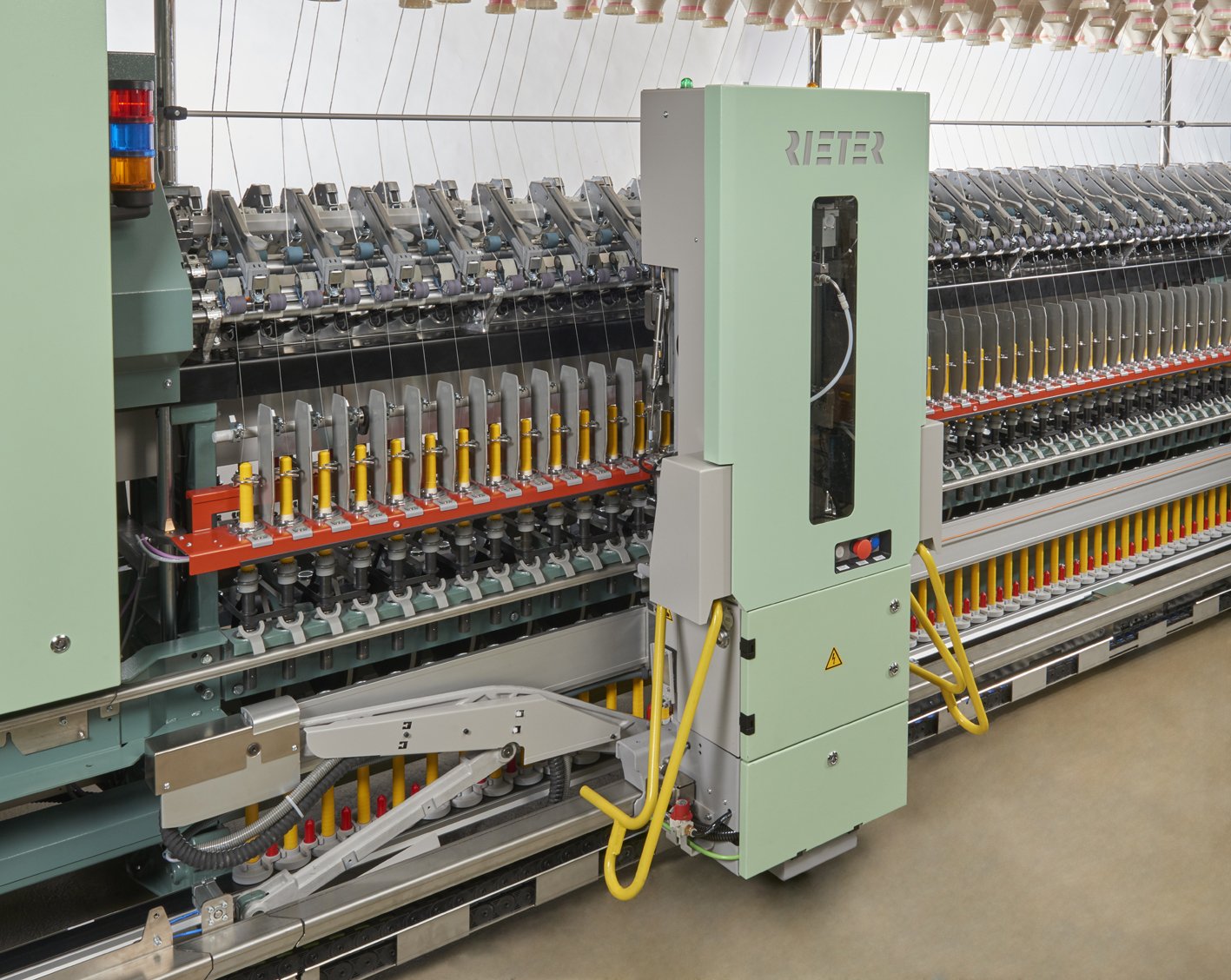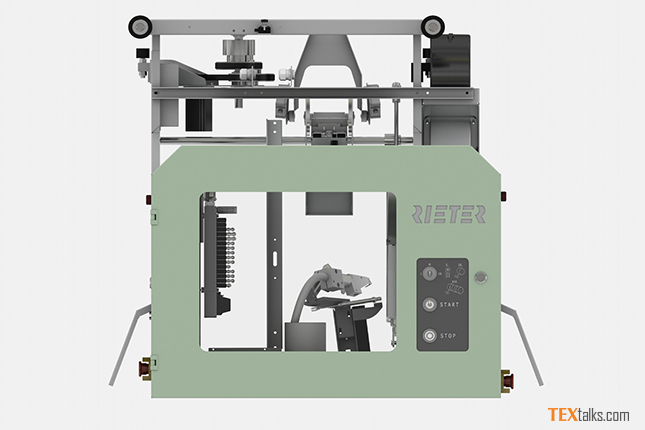Rieter has increased its R&D efforts to accelerate the development of its suite of intelligent and automated machines and systems during the COVID-19 pandemic. The recent developments will enable customers to manufacture yarns more profitably, efficiently, and sustainably. The company’s latest results will be showcased at the ITMA Asia + CITME 2021 textile machinery exhibition in Shanghai, China, from June 12 to 16.
The latest developments are:
Automatic doffing: The company has introduced its new automated doffing system ROBOdoff. ROBOdoff saves time and cost. It helps in changing and replacing complete packages with an empty tube prepared along each side of the machine so that the spinning process can continue seamlessly. It is available on the R 37 rotor spinning machine and an option on the R 35 and R 36 models. The new 31-XT-BD rotor can boost rotor yarn production by up to 6% for both knitted and woven applications. It is even possible to use lower-quality raw materials while achieving constant production output.
The NEO-YW from SSM offers benefits for the dye package winding and rewinding of filament yarns and features a new online back pressure system for low and high package densities. Together with the firmly established fastflex thread laying system and digitens tension control technology, it guarantees the best dyeing results and unwinding properties.
The latest innovations from Graf include the P-1940S card cylinder wire and the resist-O-top C-60 flexible card flat. The cylinder wire delivers consistent sliver quality irrespective of the trash content of the incoming cotton fibers. It extends its lifetime by more than 10% thanks to a robust design and an increased blade width. The flexible flat resist-O-top C-60 reduces imperfections by up to 15% for fine count yarn spinners.
The G 38 and ROBOspin: Rieter’s proven G 38 ring spinning machine, with up to 1,824 spindles, is now equipped with a fully electronic drafting system and the industry’s first fully automated piecing robot ROBOspin. This powerful combination makes it easy to produce standard, unique and compact yarns with the best-in-class compacting devices. The latest COMPACTapron incorporates 3D technology to guide the fibers smartly through the compacting zone.
 Novibra’s HPS 22 spindle, which is available for the ring and compact spinning, offers the best price-performance across all applications, with spindle speeds reaching up to 22,000 rpm to meet a pressing need on the Chinese market. The Essential monitor, one of Rieter’s all-in-one digital monitoring system modules, also has new features that provide more innovative insights into a mill’s operation.
Novibra’s HPS 22 spindle, which is available for the ring and compact spinning, offers the best price-performance across all applications, with spindle speeds reaching up to 22,000 rpm to meet a pressing need on the Chinese market. The Essential monitor, one of Rieter’s all-in-one digital monitoring system modules, also has new features that provide more innovative insights into a mill’s operation.
Rieter is a producer of textile machinery based in Winterthur, Switzerland. It was founded in 1795 by Johann Jacob Rieter (1762–1826); it initially produced textile products. In 1806, as Napoleon imposed the Continental Blockade to prevent trade between Continental Europe and the United Kingdom, it became impossible for Rieter to get spare parts for its British textile machinery. Consequently, the company started to produce spare parts themselves, and in 1810 the first self-designed textile machine left its workshop.



